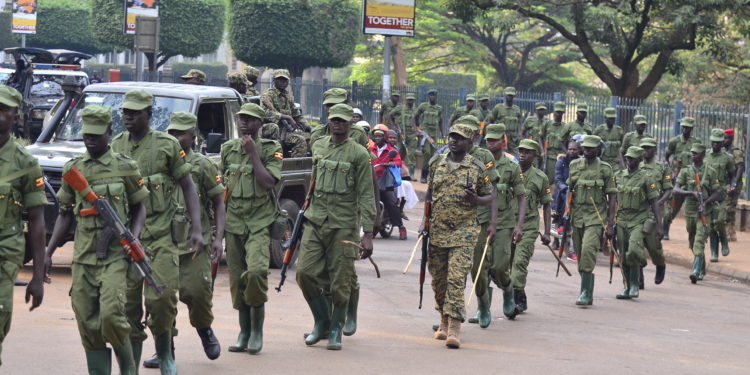The National Resistance Movement (NRM) primaries, a process in which the ruling party’s membership will sieve out flag bearers for elective positions in parliament and local government structures has sucked in the entire security architecture of the country. An investigation by the East African Center for Investigative Reporting (EACIR) in collaboration with the Daily Monitor into the tumultuous elections in which thousands of aspirants are competing for the party’s flag revealed that President Yoweri Museveni directed Uganda People’s Defence Forces (UPDF) and the Uganda Police Force leadership to deploy at least 15,000 police officers across the country to oversee the elections. UPDF commanders were placed at the apex of the operation in districts and regions mapped as hotspots.
The president also directed that all government vehicles in districts be used for these operations and Chief Administrative Officers, working with Resident District Commissioners, avail transport for the same. At the advent of the ‘war’ on Covid-19, when the government enjoyed goodwill from the public, Mr. Museveni went, quite literally, on his knees and begged Ugandan businesses and individuals to donate vehicles to help the government fight the ‘invisible enemy’. Ease of mobility, he argued, was critical in this ‘war’ and the vehicles, if he got at least 10 per district, would be helpful even in the period after the Covid-19 battle was won. A former minister and member of parliament who, in their hey days enjoyed proximity to power and understood the psyche of Gen. Museveni sent a message to this writer reading, “He is looking for cars for campaigns. Those cars have nothing to do with fighting Covid-19. Those are campaign cars.”
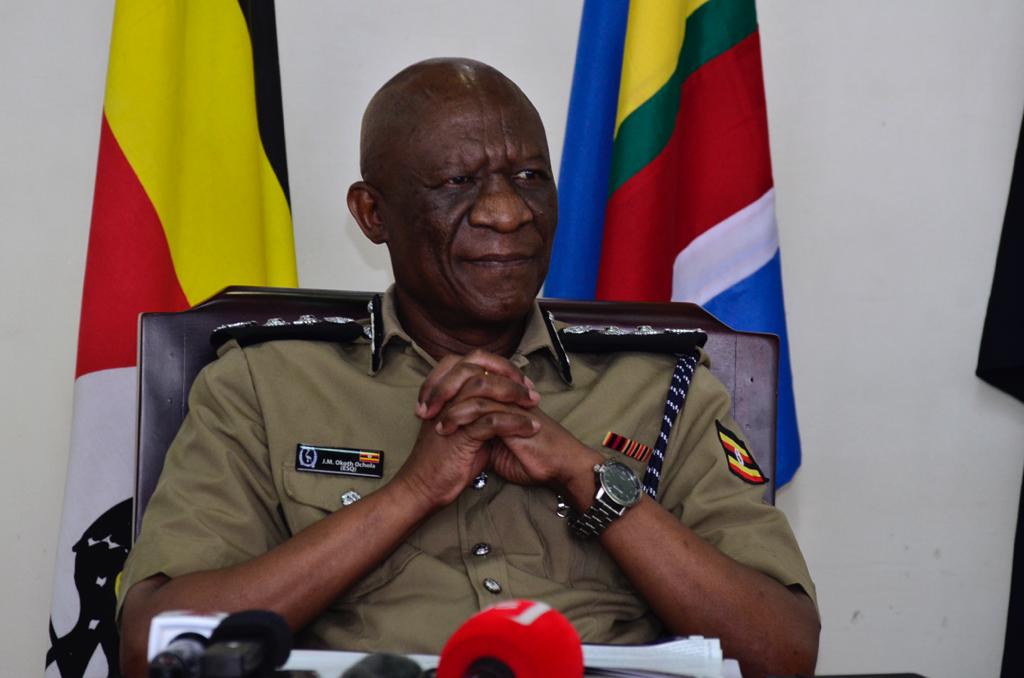
The president did not meet his target of 10 cars per district as donations dwindled alongside the waning momentum and public mood to extend a shoulder to the state. He however, as predicted by his ex-minister, and as evidenced by the leaked radio message we have seen, now finds the government vehicles useful for his party’s political activity.
In a radio message dated September 3, 2020 sent to UPDF headquarters at 18:05 hours (6:05 pm) from the President through Chief of Defence Forces (CDF) Gen. David Muhozi to the Inspector General of Police, Martin Okoth Ochola, the President instructed the army chief to, “meet IGP and tell him as follows..” The president then broke down his command into seven instructions.
The brief starts with a background of the chaotic election atmosphere, “Owing to the opportunists that are creating tensions among our people during the NRM primaries and the subsequent elections, I suggest that the 1,500 sub counties of Uganda as the policing zones per area are more manageable than the present inflated number.”
Mr. Museveni then instructed, “Starting tomorrow (Friday) the 3rd of September up to 5th September 2020, deploy 10 mounted police personnel per policing zone, mounted on a pickup and residing in the police zone 24 hours a day. Internal affairs to ensure that the vehicles are fueled and ready to move at a moment’s notice.”
The police force, the Commander-in-Chief argued, has enough manpower and if it used the 1,500 old sub counties as zones, they would need a total of 15,000 policemen, “mounted and ready to move or resting but near their vehicles.”
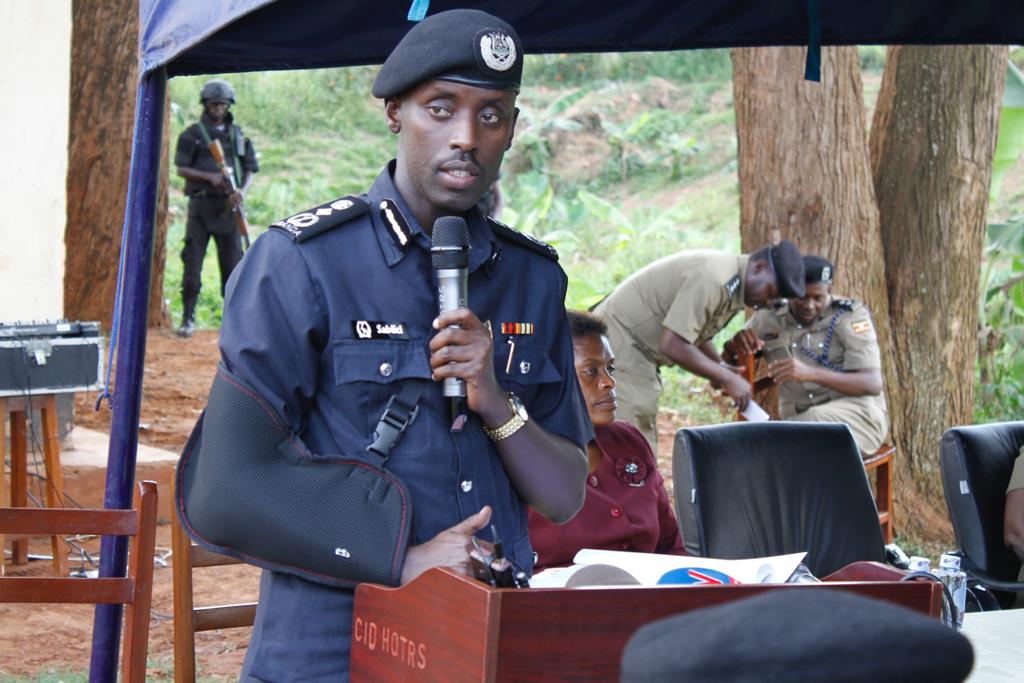
To illustrate his point on the scope of the old sub counties as the benchmark, the ruling party’s chairman and presidential flag bearer in the 2021 presidential election gives the example of Nakaseke area in central Uganda where the old sub counties were Semuto, Nakaseke, Kapeeka, Wakyato and Ngoma, “although Ngoma was too big.” He also shares the example of Ntungamo district where the original sub counties were Ntungamo, Rweikyiniro, Ruhaama, Rukoni, Ihunga, Bwongyera, Rubaare, Kayonza and Kabezi. These, the president notes, should be the policing zones for elections and other mass operations. With no less than 134 districts, the president now opines that the number of sub-counties is “inflated” considering that if the police were to deploy in all these units, it would be over-stretched. The solution to that is to revert to the old sub-counties and deploy using that arithmetic.
“I don’t want to hear any opportunists intimidating, beating, etc. any Ugandan without prompt action by the police. Anybody attacking the wanainchi (citizens) must be arrested and there must be no police bond. They should all wait for court to decide,” he ordered. Ideally, police bond is usually granted to suspects arrested after the police has preferred a charge against them and is, as a human right, not issued or denied at the behest of presidential directives.
Ghosts of election violence haunting NRM?
Uganda though has a troubled history with elections since the 1980 general elections in which the Uganda People’s Congress led by Milton Obote, Democratic Party under Paul Kawanga Ssemogerere fiercely competed for power with the Uganda Patriotic Movement of Yoweri Museveni as a fringe actor in the election. Historical records show that the election was characterized by violence. In the 1996 general election, the first direct election for the president since the 1995 Constitution was promulgated, Ssemogerere’s campaign accused the Museveni team of unleashing violence. The 2001 and 2006 presidential elections in which Museveni’s former personal medic, Kizza Besigye vied for the presidency, could easily go down in history as the most violent in Uganda, with the bare-knuckle underbelly of the state’s raw power exposed in a Supreme Court presidential election petition by the Besigye legal team. In both election petitions, Museveni did not deny or speak out against the violence nor order arrest of culprits who unleashed raw viciousness against Besigye’s supporters as recounted to the highest court. The panel of Justices of the Supreme Court concurred that the election was fraught with irregularities which did not substantially affect the final outcome of the polls.
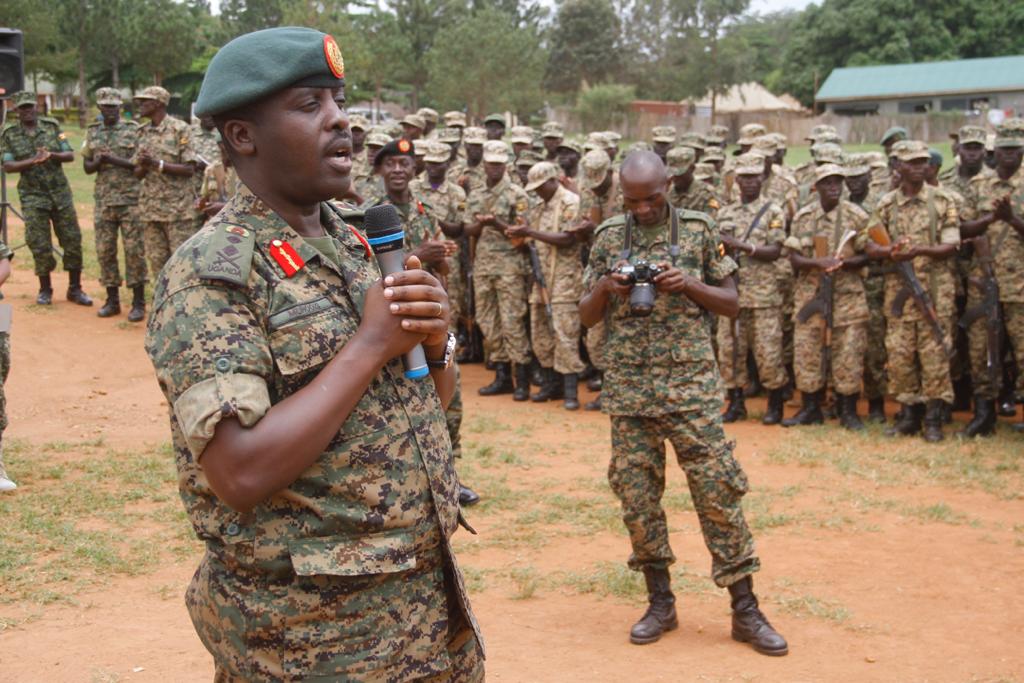
On 4th September at 13:23 hours (1:23 am), the president’s radio message was sent by the Ministry of Defence and Veteran Affairs to all units, including the Inspector General of Police, Deputy Chief of Defence Forces, Joint Chief of Staff and the Chieftaincy of Military Intelligence (CMI).
In the brief, the CDF reiterates that he met the police leadership on how to operationalize the deployment concept as directed by the President in support of the police to ensure peaceful primary elections. In that meeting with the police leadership, it was further agreed that, “we assign very senior police and UPDF leaders to reinforce the local police leaders.”
Appearing on Capital FM’s Capital Gang talk show on Saturday, government spokesman Ofwono Opondo told listeners that the ruling party had mapped out, ‘hot spots’ referring to areas where elections would be potentially problematic. Sembabule district was mentioned by Opondo as one of the hot spots.
In the communication seen by the East African Center for Investigative Reporting, the areas are given security codes. Sembabule district is called Alpha and Brig. Sabiiti Muzeyi, the Deputy IGP, Brig Deus Sande, the Commandant of Armoured Warfare Training School in Mubende district and Brig Winston Byaruhanga, are assigned there.
Sheema is referred to as Bravo and Assistant IGP Edward Ochom is deployed there, assisted by the Second Division Commander Brig Francis Takirwa while Mbale is coded as Delta with Senior Superintendent of Police (SSP) Wesley Nganizi assisted by Third Division commander, Brig Joseph Balikudembe, deployed in the newly created city.
West Nile is coded as Echo and SSP Christopher Kasalawo assisted by fourth division commander Brig. Bonny Bamweseki are deployed there while SSP John Nuwagira assisted by first Division Commander Maj. Gen. Sam Kawanga were tasked to maintain law and order in Nakaseke which is coded as Foxtrot. Namutumba is labelled as Golf and SSP Frank Mwesigwa assisted by the Commander Uganda Rapid Deployment Capability Centre [URDCC] Brig. Peter Omola were assigned to ensure the elections go smoothly.
The mentioned UPDF commanders, Gen. Muhozi ordered, “should marry up with the mentioned police commanders today (Friday) without fail to synchronise plans. Campaigns end today. No movement beyond the curfew time. Mobilise transport from the districts through RDCs (Resident District Commissioners) and CAOs (Chief Administrative Officers). Firmly take action on those that breach the rules.”
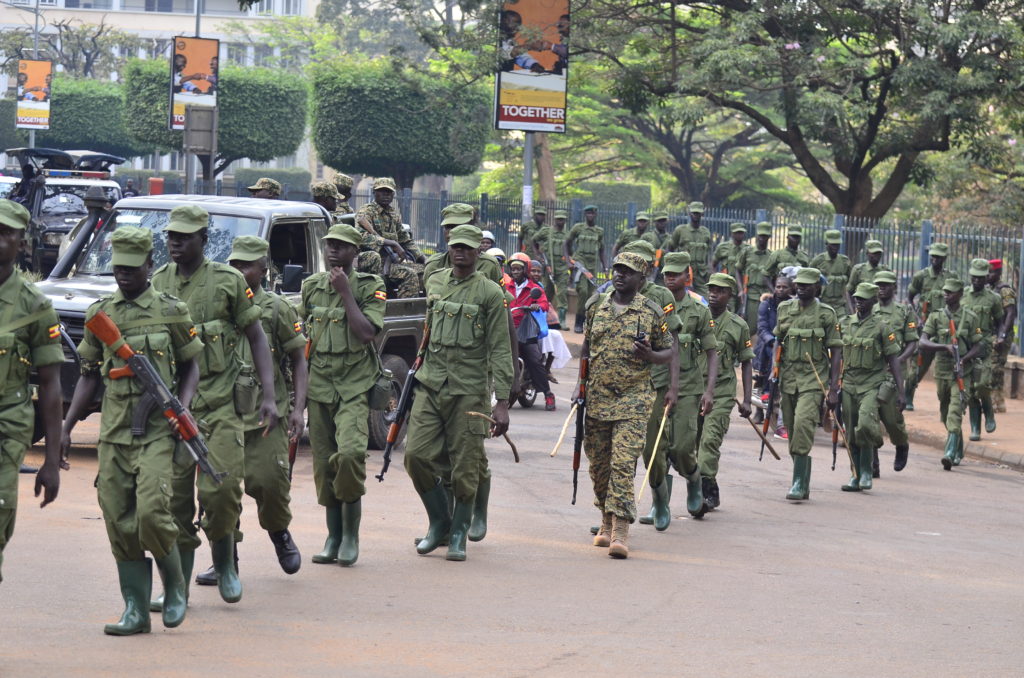
At 15:05 hours (3:05 am) on Friday, President Museveni sent another message titled, “From President to CDF for immediate conveyance to IGP’ in which he focuses, this time round, on the fact that, “the unrepentant opportunists cannot understand the importance of the sovereignty of the people of Uganda. Uganda belongs to the people, not the leaders. It is their sovereign right to elect whoever they want.” Any use of threats, intimidation, manipulation, rigging let alone actual attacks, the septuagenarian head of state instructed, “must be crushed without mercy.”
The president shares that, “I have heard of two incidents in Sembabule, one involving Anifa Kawooya who was attacked and injured on Sunday. All those involved must be arrested and charged with the necessary offences. The second one was near Sam Kutesa’s house where a big convoy at about twenty minutes past midnight crushed into the security barrier around the home and the minister’s guards had to fire bullets.” This, Mr. Museveni, whose young brother is competing for the NRM flag with his brother in law, Mr. Sam Kutesa, the foreign affairs minister’s daughter, noted, was during curfew time. He then rhetorically asks where the convoy was going and why the convoy was used in the first place, especially when, owing to Covid-19 standard operating procedures, people are not supposed to congregate.
“I later learnt that the same convoy was beating people along the way. These two groups must be arrested by 1700 hours (5 pm on Friday). There must also be no police bond for them. Report action by 1900 hours today (7pm on Friday),” he ordered.
The president then tackled the issue of some troublemakers being his relatives, saying it is, “a lot of nonsense. In our struggles some of my relatives were with Idi Amin, some with (Milton) Obote, the security forces should act against the mistake makers without fear. Nobody is above the law. Deal with facts and the law.”
The UPDF Spokesperson, Brig Flavia Byekwaso said the deployment of the UPDF soldiers to is back up the civilian authorities.
“We only come in when we are called up on to help and the law allows us in situations where police is likely going to be overwhelmed,” she said. Brig Byekwaso said the constitution allows the army to deploy and support the police if the situation is volatile.
“Whenever we called upon, we coordinate with police and assess the situation before we deploy,” she said.
This story was done in collaboration with the Daily Monitor as part of the East African Center for Investigative Reporting’s Collaborative Investigative Journalism Initiative.


